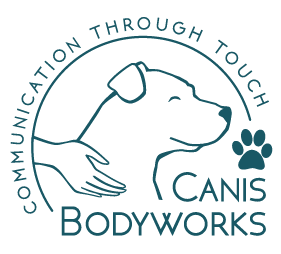Advanced Techniques - reserve Your Spot in class Today
Myofascial Trigger Point Therapy & Orthopedic Friction: Workshop
Myofascial trigger point therapy and orthopedic friction are
two of the most effective soft tissue treatments for reducing and eliminating
musculoskeletal pain and dysfunction in both humans and dogs. Many dogs that
present with on-and-off lameness, along with chronic dysfunction or limited
mobility, very often suffer from myofascial trigger points. Trigger points
initiate a downward spiral that begins with limited range of motion and
inhibited muscle contractibility; they are often responsible for a multitude of
issues, including ischemia in the tissues, referred pain patterns, nerve
impingement, and limited joint movement which adds to degenerative changes
within the joints.
Additionally, practitioners working with soft tissue fail to apply techniques to address tendons, ligaments, and fascial attachment sites. Orthopedic friction is often the missing link. This form of soft tissue manipulation improves connective tissue mobility, breaks down and realigns scar tissue, and deactivates myofascial trigger points in ligaments and periosteum attachments of tendons.
Both of these advanced techniques are powerful and indispensable tools that should be part of every canine massage therapist and rehab practitioner’s toolbox. Myofascial trigger point therapy is a time efficient way to assess tissue health, and it effectively decreases pain, increases range of motion, and assists in tissue healing which allows ongoing strengthening and rehabilitation. Orthopedic friction improves connective tissue mobility, breaks down and realigns scar tissue, and deactivates myofascial trigger points in ligaments and periosteum attachments of tendons.
In this workshop, participants learn how to apply myofascial trigger point and orthopedic friction techniques to specific structures for all soft tissue injuries and to promote overall healing.
Course hours include 24 in-class hours and 8 hours for post-workshop assignments: a final exam and targeted case studies.
CE hours approved for RACE (24) and NBCAAM (32).
Additionally, practitioners working with soft tissue fail to apply techniques to address tendons, ligaments, and fascial attachment sites. Orthopedic friction is often the missing link. This form of soft tissue manipulation improves connective tissue mobility, breaks down and realigns scar tissue, and deactivates myofascial trigger points in ligaments and periosteum attachments of tendons.
Both of these advanced techniques are powerful and indispensable tools that should be part of every canine massage therapist and rehab practitioner’s toolbox. Myofascial trigger point therapy is a time efficient way to assess tissue health, and it effectively decreases pain, increases range of motion, and assists in tissue healing which allows ongoing strengthening and rehabilitation. Orthopedic friction improves connective tissue mobility, breaks down and realigns scar tissue, and deactivates myofascial trigger points in ligaments and periosteum attachments of tendons.
In this workshop, participants learn how to apply myofascial trigger point and orthopedic friction techniques to specific structures for all soft tissue injuries and to promote overall healing.
Course hours include 24 in-class hours and 8 hours for post-workshop assignments: a final exam and targeted case studies.
CE hours approved for RACE (24) and NBCAAM (32).
Write your awesome label here.
Write your awesome label here.
Where In Canada?
The Canada-based workshops take place at the Animal Massage and Movement Education Centre (AMMEC) in Frankville, Ontario.
Located 30 minutes from Smiths Falls/Montague Airport and 1 hour 22 minutes from Ottawa International Airport.
Located 30 minutes from Smiths Falls/Montague Airport and 1 hour 22 minutes from Ottawa International Airport.
Other Workshop Locations - 2026
What's Next?
Build Your Skills!
Getting certified or looking to expand your existing skillset? Check out the following workshop. Lymphatic Massage is a valuable technique to know, and it's required for certification.
Lymphatic Massage: The Common Denominator
Patrick Jones - Course author



